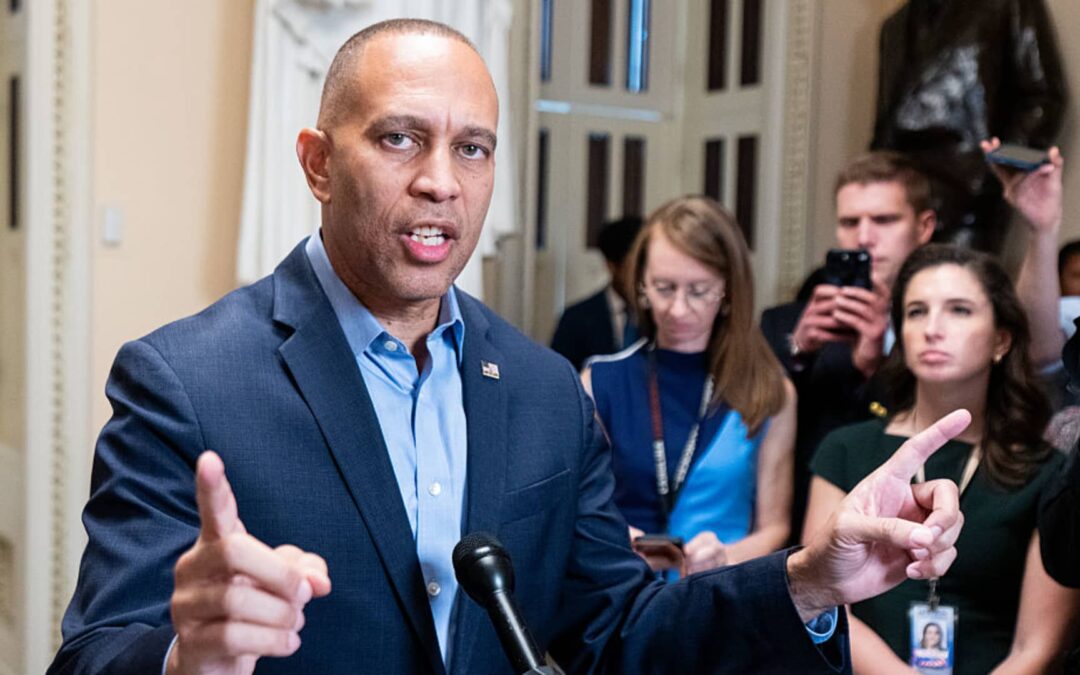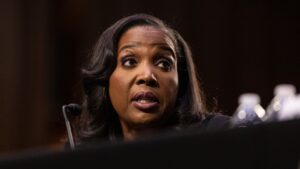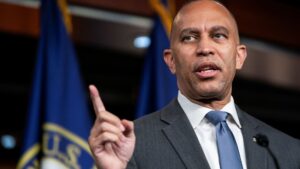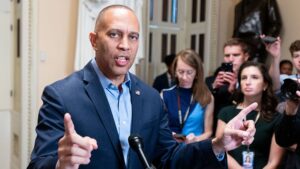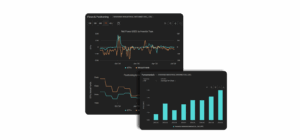House Minority Leader Hakeem Jeffries, D-N.Y., holds a news conference on the government funding deadline in the Will Rogers Corridor in the U.S. Capitol on Thursday, September 24, 2025.
Bill Clark | Cq-roll Call, Inc. | Getty Images
Washington, D.C., is at an impasse with just days to go before the federal government shuts down, as Democrats dig in on their health care demands and President Donald Trump backs out of negotiations.
Congress is set to return to Capitol Hill on Monday, giving lawmakers just two days to reach a deal that will keep the government from shutting down starting Wednesday.
Republicans are demanding that Senate Democrats help them pass a stopgap bill that squeaked through the House last week. Any such bill will require 60 votes to be adopted.
But top Democrats insist that any short-term funding bill include protections for health-care programs, including the extension of Affordable Care Act enhanced tax credits. Those credits help people lower the cost of health insurance plans purchased on Obamacare marketplaces.
House Minority Leader Hakeem Jeffries, D-N.Y., warned Wednesday that “any agreement” on health care in budget talks “has to be ironclad and in legislation.”
“There’s no trust that exists between House Democrats and House Republicans at this particular point in time, given the fact that they’ve consistently tried to undermine bipartisan agreements that they themselves have reached,” Jeffries said at a news conference.
“We have to have a conversation with Republicans in order to work toward decisively resolving the health care crisis that they’ve created,” Jeffries said. “And part of that health care crisis relates to the Republican refusal to extend the Affordable Care Act tax credits.”
Democrats brushed off a warning from the White House’s Office of Management and Budget that federal agencies should prepare for mass firings if a funding agreement is not struck.
Jeffries called OMB Director Russ Vought, a “malignant political hack.”
“We will not be intimidated by your threat to engage in mass firings,” Jeffries wrote on X. “Get lost.”
Republicans have balked at Democrats’ health-care demands.
Senate Majority Leader John Thune, R-S.D., in a CNN interview Wednesday, called them “unreasonable and unserious.”
Senate Minority Leader Chuck Schumer, D-N.Y., responded to Thune on X: “What’s ‘unserious’ is ignoring the 93% spike for health insurance coming to Americans on November 1.”
“Democrats are fighting to lower prices, while Republicans are failing families,” Schumer said.
Jeffries and Schumer sought a meeting with President Donald Trump on their dispute. But Trump on Tuesday canceled that meeting, escalating the chances of a shutdown next week.
Trump said he had “decided that no meeting with their Congressional Leaders could possibly be productive.”
Jeffries shot back.
“Donald Trump wakes up Tuesday morning and goes on an unhinged rant and cancels the meeting,” Jeffries said. “Why? Because he doesn’t want to discuss the Republican healthcare crisis, and they’ve decided to shut the government down.”
Democrats are betting that Republicans — who hold the White House and narrow majorities in both chambers of Congress — will be blamed for a shutdown.
And with the 2026 midterm elections just over a year away, they believe voters will punish Republicans if the Obamacare subsidies go away.
If those tax credits lapse, average premiums could soar by about 75% for millions of Americans, according to KFF, a nonpartisan health policy research group.
Republicans, for their part, have said they are open to discussions on extending the subsidies — just not right now.
“[That’s] a December policy debate and decision, not a September funding matter,” House Speaker Mike Johnson, R-La., said on CNBC’s “Squawk Box” last week.
Republicans are pushing for a “clean” stopgap funding bill without policy additions.
Senate Republicans, with a narrow majority, need a handful of Democrats to vote with them to pass any legislation to keep the government open.
One major question underpinning talks is whether Senate Democrats — including Schumer — ultimately cave and vote with Republicans to keep the government open, as a number did in March.
At that time, Schumer voted with Republicans to keep the government open, drawing sharp pushback from the progressive wing of his party.
At least one Democratic senator, John Fetterman of Pennsylvania, has expressed opposition to Democrats’ current shutdown strategy.

